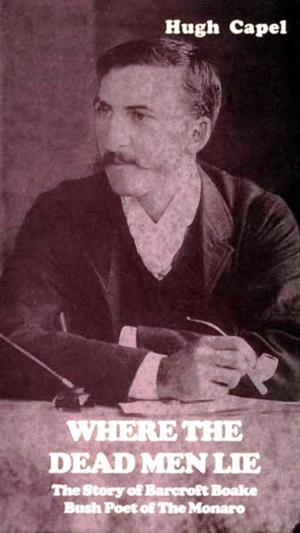Landlopers: The Tale of a Drifting Travel, and the Quest of Pardon and Peace
Fiction & Literature, Classics, Historical| Author: | John Le Gay Brereton | ISBN: | 1230000144232 |
| Publisher: | WDS Publishing | Publication: | June 22, 2013 |
| Imprint: | Language: | English |
| Author: | John Le Gay Brereton |
| ISBN: | 1230000144232 |
| Publisher: | WDS Publishing |
| Publication: | June 22, 2013 |
| Imprint: | |
| Language: | English |
If it be fair to take one's impressions from English books and papers, I am surely justified in supposing that the average British "tramp" is a despicable loafer or an abandoned ruffian. The Australian "trav'ler" is on a different footing. Ragged prowlers do not hide behind Australian barns and watch for unprotected females to insult or blue-eyed babes to kidnap. Our girls can usually look after themselves, and our infants are saleable only at starvation prices. And yet the country is full of moneyless men who "pad the hoof" from place to place, and drift backward and forward, always begging, occasionally stealing, seldom finding rest, and in some cases quite undesirous of a more settled fortune or a less precarious mode of existence. These men belong to the vast army of The Unemployed. When a poor tradesman or labourer is out of work, he must move on or starve on the spot. He therefore rolls up his "bluey" and starts off, billy in hand, "on the wallaby track" in search of a job. But countless others are engaged in the same quest, and jobs are scarce. Some wanderers are eventually enthralled by the irresistible charm of nomadic idleness, and are unable to return to a definite and cabined way of life.
In the beginning of the shearing season, the main current sets westward, and the wayfarers wander from shed to shed on the inland stations. When shearing-time is over, the tide sets back towards the cities. Travelling in the "out back" country is full of hardship--"and there is no health in it," as a vagabond rouseabout once told me. In the dry season, hardly a drop of water is to be had: in the wet season, the whole country is a puddle of mud of various consistency. Travelling in the coastal districts is distinctly pleasant, if the weather be moderately fine. Personally, I have never tramped on the western side of the Blue Mountains.
The trav'ler usually gets his food by the system which he honours with the title of "bummin'"--in other words, he begs it. He levies his tax upon every homestead, and everywhere he meets with helping hands. Of course, many graceless scamps take advantage of this state of affairs and roam about the country for a living. They are professional trav'lers. They refuse to work, because for them labour is an unnecessary trouble. They camp on the outskirts of a township until they have thoroughly bummed it, and then they set out for pastures new.
When I am out of employment in the summer time, I become a trav'ler. My tactics depend upon the condition of my finances. Sometimes I pay my way; sometimes I am a bummer. Why I love the rough and ready life of comparative hardship, and what comfort I find in the manifold discomfort of "the track," are questions which the reader may answer for himself when he has come to the end of Knight Wilford's narrative.
It must be obvious to the most casual reader--even to the counter-lunch man, who takes his literature in snacks at the bookstalls--that much of the story is founded upon the author's own experiences. Therefore I think well to explain that "The Boy" is not a portrait of any of my friends, though in depicting him I have found it convenient to borrow a few accidental details (of costume, employment and so forth) from one who travelled with me a few years ago. But essentially "The Boy" is himself alone.
J. LE GAY BRERETON
If it be fair to take one's impressions from English books and papers, I am surely justified in supposing that the average British "tramp" is a despicable loafer or an abandoned ruffian. The Australian "trav'ler" is on a different footing. Ragged prowlers do not hide behind Australian barns and watch for unprotected females to insult or blue-eyed babes to kidnap. Our girls can usually look after themselves, and our infants are saleable only at starvation prices. And yet the country is full of moneyless men who "pad the hoof" from place to place, and drift backward and forward, always begging, occasionally stealing, seldom finding rest, and in some cases quite undesirous of a more settled fortune or a less precarious mode of existence. These men belong to the vast army of The Unemployed. When a poor tradesman or labourer is out of work, he must move on or starve on the spot. He therefore rolls up his "bluey" and starts off, billy in hand, "on the wallaby track" in search of a job. But countless others are engaged in the same quest, and jobs are scarce. Some wanderers are eventually enthralled by the irresistible charm of nomadic idleness, and are unable to return to a definite and cabined way of life.
In the beginning of the shearing season, the main current sets westward, and the wayfarers wander from shed to shed on the inland stations. When shearing-time is over, the tide sets back towards the cities. Travelling in the "out back" country is full of hardship--"and there is no health in it," as a vagabond rouseabout once told me. In the dry season, hardly a drop of water is to be had: in the wet season, the whole country is a puddle of mud of various consistency. Travelling in the coastal districts is distinctly pleasant, if the weather be moderately fine. Personally, I have never tramped on the western side of the Blue Mountains.
The trav'ler usually gets his food by the system which he honours with the title of "bummin'"--in other words, he begs it. He levies his tax upon every homestead, and everywhere he meets with helping hands. Of course, many graceless scamps take advantage of this state of affairs and roam about the country for a living. They are professional trav'lers. They refuse to work, because for them labour is an unnecessary trouble. They camp on the outskirts of a township until they have thoroughly bummed it, and then they set out for pastures new.
When I am out of employment in the summer time, I become a trav'ler. My tactics depend upon the condition of my finances. Sometimes I pay my way; sometimes I am a bummer. Why I love the rough and ready life of comparative hardship, and what comfort I find in the manifold discomfort of "the track," are questions which the reader may answer for himself when he has come to the end of Knight Wilford's narrative.
It must be obvious to the most casual reader--even to the counter-lunch man, who takes his literature in snacks at the bookstalls--that much of the story is founded upon the author's own experiences. Therefore I think well to explain that "The Boy" is not a portrait of any of my friends, though in depicting him I have found it convenient to borrow a few accidental details (of costume, employment and so forth) from one who travelled with me a few years ago. But essentially "The Boy" is himself alone.
J. LE GAY BRERETON















